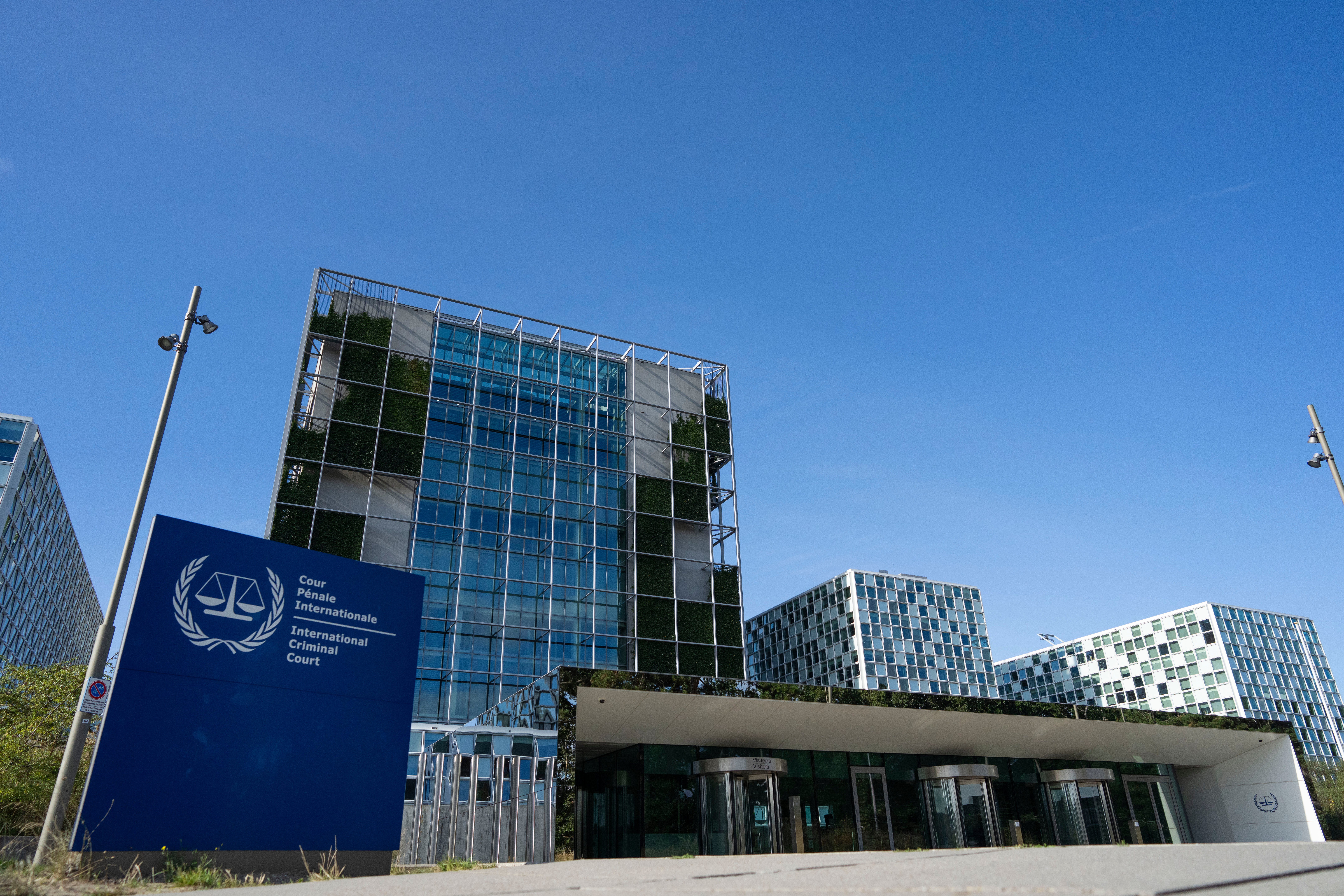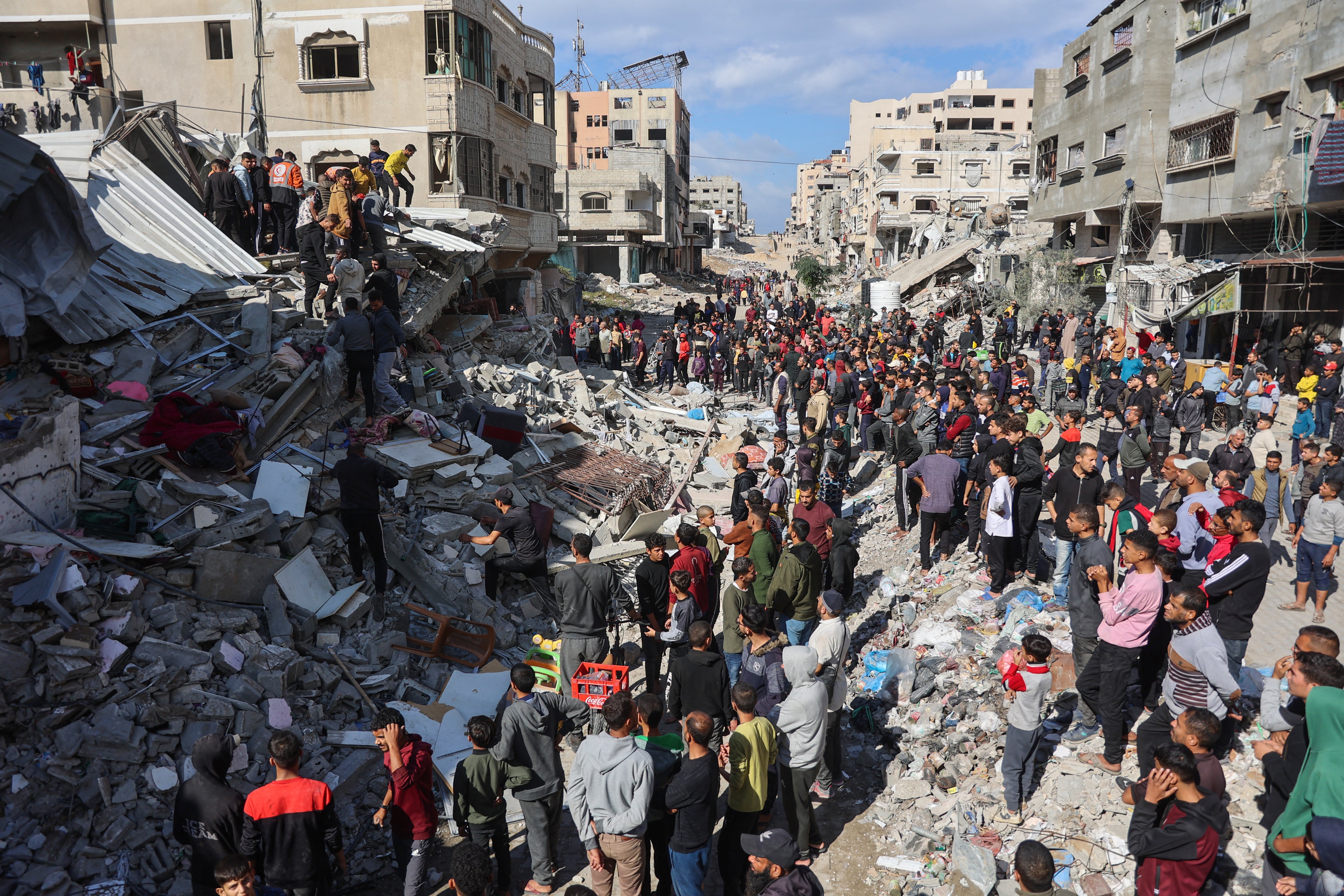The International Criminal Court (ICC) has issued an arrest warrant for Israel’s prime minister Benjamin Netanyahu over the war in Gaza.
The Israeli premier and his former defence minister Yoav Gallant have both been accused by the ICC of potentially committing crimes against humanity and war crimes, including using starvation as a method of warfare, and intentional attacks on civilians.
The ICC also issued an arrest warrant for Hamas chief Mohammed Deif for alleged crimes against humanity and war crimes in Israel and Palestine from at least 7 October 2023, the date of Hamas’s cross-border attack which left at least 1,200 dead, saw 250 taken hostage and sparked the Gaza war.
Prosecutors had initially filed warrant applications for two other senior Hamas leaders, Ismail Haniyeh and Yahya Sinwar, which were withdrawn following confirmation of their recent deaths. Israel said in August it had killed Deif in an air strike, a claim the court said it was as yet unable to verify.
What is the ICC?
After decades of efforts to create an international justice mechanism akin to tribunals used to prosecute crimes committed in the Second World War, Yugoslav wars and the Rwandan genocide, the ICC was established in 2002, when its 124 member states signed up to a treaty called the Rome Statute.
Dozens of countries did not sign and do not accept the Hague-based court’s jurisdiction over war crimes, genocide and other crimes. They include Israel, the United States, Russia and China.
The ICC becomes involved when nations are unable or unwilling to prosecute crimes on their territory. Israel argues that it has a functioning court system, and disputes over a nation’s ability or willingness to prosecute is an issue that has fuelled past rows between the court and individual countries.
It can prosecute crimes committed by nationals of member states or on the territory of member states by other actors.

The ICC has 12 ongoing investigations, has issued at least 56 arrest warrants and taken 21 suspects into custody, with 32 cases heard before the court and 27 defendants still at large. Its judges have convicted 11 suspects and acquitted four.
Of the 11 convictions, six were for war crimes and crimes against humanity, all relating to militia leaders from Democratic Republic of Congo, Mali and Uganda. Terms range from nine to 30 years in prison. The maximum possible term is life imprisonment.
In its early years, the court – whose budget for 2024 is close to €187m (£155m) – was criticised for focusing on crimes in Africa. While six of its current investigations are in African nations, it now has investigations in Asia, Europe, the Middle East and South America.
What is Israel’s relationship with the ICC?
Israel often levies accusations of bias at international bodies such as the United Nations. The ICC is not a UN body but accepted the State of Palestine as a member in 2015, a year after the Palestinians accepted the court’s jurisdiction.
The court’s chief prosecutor at the time announced in 2021 that she was opening an investigation into possible crimes on Palestinian territory. Mr Netanyahu criticised the decision as hypocritical and antisemitic.

ICC prosecutor Karim Khan then visited Ramallah and Israel in December, meeting Palestinian officials and families of Israelis killed or taken hostage by Hamas militants in the 7 October attack.
He called Hamas’s actions “some of the most serious international crimes that shock the conscience of humanity, crimes which the ICC was established to address,” and called for the immediate and unconditional release of all hostages.
Mr Khan added that “international humanitarian law must still apply” in the Israel-Hamas war and “the Israeli military knows the law that must be applied”, and in May submitted arrest warrants for Mr Netanyahu, Mr Gallant, and Hamas leaders Deif, Sinwar and Haniyeh.
While Israel had responded by challenging the ICC’s jurisdiction and arguing that the court did not provide Israel the opportunity to investigate the allegations itself before requesting the warrants, the ICC has now ruled that it did not require Israel’s acceptance of the court’s jurisdiction to issue warrants.
What could an arrest warrant mean for Netanyahu?
Though the decision turns Mr Netanyahu into an internationally wanted suspect, the extent of the warrant’s practical implications are unclear given Israel and its major ally, the US, are not members of the court.

The ICC itself has no police to enforce warrants, meaning neither Mr Netanyahu or Mr Gallant are likely to face judges in the Hague.
While the warrant means that the ICC’s 124 member states – including the UK – would be obliged to arrest them if they were to enter their territory, Russia’s Vladimir Putin recently showed he could still visit an ally when he travelled to ICC member state Mongolia and was not arrested.
However, both Jordan and the Netherlands have said their countries must respect the new warrants, indicating that international travel will be much more difficult for both Mr Gallant and Mr Netanyahu, whose last overseas trip was to the US in July.
The ICC application could also indirectly influence other legal proceedings against Mr Netanyahu.
While it is a separate matter from court cases demanding arms embargoes against Israel and South Africa’s case at the UN’s top court, the International Court of Justice, the decision by ICC judges that there are reasonable grounds to believe Mr Netanyahu is guilty could strengthen South Africa’s case.
The decision to issue a warrant can also bolster legal challenges demanding an arms embargo elsewhere, as numerous states have provisions against selling arms to states which might use them in ways that violate international humanitarian law.
Additional reporting by agencies

